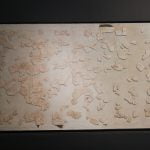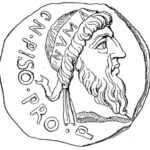The seven-day cycle and the original names of the days of the week are from Mesopotamia. Babylonian astrologers believed that human life was influenced by seven celestial bodies, which they saw as moving around a stationary Earth: Mercury, Venus, Mars, Jupiter, Saturn, the sun and the moon (Uranus, Neptune and Pluto were not known in ancient times).
This belief was easily connected with the already existing seven-day system of counting the days because of the convergence of the numbers – the number 7 was also a symbol of prosperity. Since the Babylonians assumed that each heavenly body in turn governs the first hour of each day, they gave them appropriate names that were also the names of the Babylonian deities.
As a result of the conquests of Alexander the Great, the beliefs of the Middle East began to penetrate into the Mediterranean countries, and the idea of the week became known in ancient Greece and Rome. Originally, it was probably limited to the circle of astrologers. The only change that was made was the replacement of Babylonian names with the names of local deities. The system grew in popularity, and in 321 CE was officially recognized by the Roman emperor Constantine the Great. The first day of the week was a day of rest and prayer.
Days of the week | ||
Sunday | dies Solis | day of the sun (Sol) |
Monday | dies Lunae | moon day (Luna) |
Tuesday | dies Martis | day of the god of war, Mars (Mars) |
Wednesday | dies Mercuri | day of the messenger god Mercury (Mercurius) |
Thursday | dies Iovis | day of the chief god Jupiter (Iuppiter) |
Friday | dies Veneris | day of the goddess of love, Venus |
Saturday | dies Saturni | father of Jupiter – Saturn’s day (Saturnus) |
It is easy to see the influence of Latin names on the names of the days of the week in other languages. For example, in English (dies became day), Sunday also comes from the sun, Monday from the moon, and Saturday, like in Latin, from the god Saturn. The other day names have been replaced with the names of the corresponding Germanic gods: Tuesday comes from the god Tiu, Wednesday – from Wodan, Thursday – Donar, and Friday – Freya.
Most Polish names have more down-to-earth origins – from their position in the weekly cycle: Monday follows Sunday, Tuesday is the second (secondary), Wednesday is the middle of the week, Thursday is the fourth, and Friday is the fifth. Saturday comes from the Jewish Sabbath, and Sunday “do not act” means the traditional time of rest and prayer.







